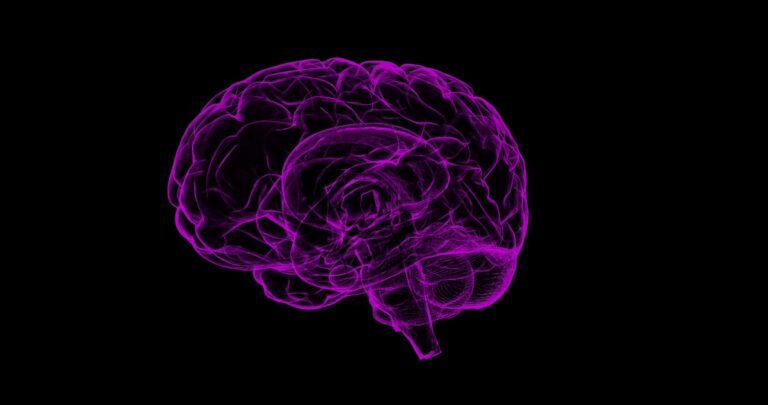What is Trauma?
The COVID-19 pandemic has thrown the world into a state of flux, and the immediate effects of our present crisis are easily identifiable: hundreds of thousands lost to a deadly virus, economic devastation, and an uncertain future. While these problems will continue to affect our lives in the coming months, there’s a psychological consequence of the pandemic that we haven’t yet seen in its entirety. Healthcare workers have been intimately exposed to harrowing scenes of sickness and death; countless people are grieving the loss of a friend or loved one; millions more are trying to stay afloat after losing their job or business. Across the globe, people have been quarantined at home for months, completely isolated and alone. We know with near-certainty that these experiences may cause adverse mental health challenges such as trauma — the topic of today’s blog.
Broadly defined, trauma is our emotional and psychological response to disturbing or upsetting events. Traumatic experiences cause both short and long-term effects on our mental health, and while the causes of trauma vary, the symptoms are often similar between individuals.
There are many potential sources of trauma, which differ in duration, frequency, and scope, among other factors. Acute trauma stems from a single incident like a car accident or death of a loved one, while chronic trauma stems from repeated exposure, like abuse from a domestic partner over many years (1). Childhood trauma refers to traumatic events experienced during youth, the effects of which often extend into adulthood. In some cases, traumatic exposure, duration, and age vary between individuals even though the source is the same, such as the case of a single sexual assault versus a history of childhood sexual abuse.
Symptoms of trauma manifest in both a physical and psychological manner. Physical symptoms include insomnia, fatigue, a racing heartbeat, and difficulty concentrating. In the case of abuse and violent trauma, a victim may also have cuts, bruises, or scars. Psychological symptoms include shock, denial, mood swings, anxiety, anger, depression, numbness, shame, and withdrawal from the outside world (2).
Many of us have traumatic experiences at one point or another, but as we process the event emotionally our symptoms begin to fade. Some symptoms may diminish within a few days, while others can take weeks or months, and reminders of the experience will often cause us emotional pain even after symptoms have subsided (2). In some cases, however, an individual will continue to experience symptoms for a long time with no significant improvement. Post-Traumatic Stress Disorder, or PTSD, occurs when we are unable to process trauma and continue to experience a state of psychological shock indefinitely. While emotional trauma is the natural way we come to terms with profoundly distressing experiences, PTSD develops when we get stuck in that trauma and can’t find a way out (3).
Trauma and PTSD can feel relentless and perpetual, but there is hope. Through cognitive-behavioral therapy, support groups, exercise, and a variety of other techniques and activities, we can work through our emotions and recover from the events of our past. Stay tuned for future posts on specific methods we can use to overcome trauma.
If you or a loved one are experiencing symptoms of trauma, know that you are not alone. If you’re having suicidal thoughts, call the National Suicide Prevention Lifeline at 1-800-273-TALK (8255) to speak with a skilled, trained counselor at your local crisis center. These services are available to you 24-hours a day. If you are having a psychological emergency, call your doctor or 911 immediately.
Broadly defined, trauma is our emotional and psychological response to disturbing or upsetting events. Traumatic experiences cause both short and long-term effects on our mental health, and while the causes of trauma vary, the symptoms are often similar between individuals.
There are many potential sources of trauma, which differ in duration, frequency, and scope, among other factors. Acute trauma stems from a single incident like a car accident or death of a loved one, while chronic trauma stems from repeated exposure, like abuse from a domestic partner over many years (1). Childhood trauma refers to traumatic events experienced during youth, the effects of which often extend into adulthood. In some cases, traumatic exposure, duration, and age vary between individuals even though the source is the same, such as the case of a single sexual assault versus a history of childhood sexual abuse.
Symptoms of trauma manifest in both a physical and psychological manner. Physical symptoms include insomnia, fatigue, a racing heartbeat, and difficulty concentrating. In the case of abuse and violent trauma, a victim may also have cuts, bruises, or scars. Psychological symptoms include shock, denial, mood swings, anxiety, anger, depression, numbness, shame, and withdrawal from the outside world (2).
Many of us have traumatic experiences at one point or another, but as we process the event emotionally our symptoms begin to fade. Some symptoms may diminish within a few days, while others can take weeks or months, and reminders of the experience will often cause us emotional pain even after symptoms have subsided (2). In some cases, however, an individual will continue to experience symptoms for a long time with no significant improvement. Post-Traumatic Stress Disorder, or PTSD, occurs when we are unable to process trauma and continue to experience a state of psychological shock indefinitely. While emotional trauma is the natural way we come to terms with profoundly distressing experiences, PTSD develops when we get stuck in that trauma and can’t find a way out (3).
Trauma and PTSD can feel relentless and perpetual, but there is hope. Through cognitive-behavioral therapy, support groups, exercise, and a variety of other techniques and activities, we can work through our emotions and recover from the events of our past. Stay tuned for future posts on specific methods we can use to overcome trauma.
If you or a loved one are experiencing symptoms of trauma, know that you are not alone. If you’re having suicidal thoughts, call the National Suicide Prevention Lifeline at 1-800-273-TALK (8255) to speak with a skilled, trained counselor at your local crisis center. These services are available to you 24-hours a day. If you are having a psychological emergency, call your doctor or 911 immediately.
Share








